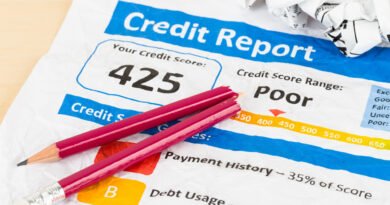Benefits of Home Equity Loans: Is This Financial Tool Right for You
Home equity loans are a form of credit available to homeowners that allow them to leverage the equity built up in their home as collateral for a loan. This type of loan can provide homeowners with access to funds when they need them, whether it be for home improvements, debt consolidation, emergency expenses, or other large purchases.
In this article, we’ll discuss the key benefits of home equity loans and how they can be used to help finance your goals. We’ll also touch on some potential risks associated with taking out such a loan, as well as provide advice on whether or not this type of loan is the right choice for you given your personal financial situation.
What are the benefits of home equity loans?
Home equity loans offer a number of benefits compared to other forms of financing. Here are some of the key advantages:
- Competitive interest rates– Home equity loans typically have lower interest rates than traditional unsecured loans. This can make them more affordable in the long run and help you save money on your loan payments. The interest rates on home equity loans are often fixed, making them easier to budget for.
- Tax deductions– Home equity loans can also be eligible for tax deductions. The interest payments you make on the loan may be deductible, meaning you could get some money back at tax time. Talk to a qualified tax professional or financial advisor to learn if this applies to you.
- Simple repayment terms– Another advantage of home equity loans is that the repayment period is often short, meaning you can pay it off quickly and be done with the loan. Most loans have a fixed term, which allows you to budget for your payments and know exactly when you’ll have the loan paid off.
What are the risks of home equity loans?
Although home equity loans can be a great financial tool, they do come with some potential risks. Here are a few of the key considerations to keep in mind:
- Risk of foreclosure– Since your home is used as collateral for the loan if you fail to make payments on the loan, you risk losing your home. This can be a risky proposition, so it’s important to make sure you take out a loan amount that is affordable for you and that you are confident in your ability to pay it back.
- Potential fees– Home equity loans often come with several fees including application fees, closing costs, and penalties for prepayment. Make sure you understand all the costs associated with taking out a home equity loan before signing on the dotted line.
These are just a few of the key risks associated with taking out a home equity loan. It’s important to discuss your personal situation and financial goals with a qualified financial advisor or tax professional before taking out such a loan.
When should I consider taking out a home equity loan?
Home equity loans can be a great tool for those who are looking to access funds in the form of a loan. However, it’s important to make sure you understand the risks associated with such a loan and that you assess whether or not this type of financing is right for you given your personal financial situation.
If you do decide to take out a home equity loan, make sure you shop around for the best terms and rates. Talk to multiple lenders and compare the different offers to find the one that’s right for you. And remember, a home equity loan is just one of many financing options available to you. Depending on your situation, there may be other options that are better suited to meet your needs.
Ultimately, home equity loans can be a great financial tool for those who understand the risks and want to leverage their home’s value to access funds. But it’s important to do your research before taking out a loan and make sure it’s the right choice for you.
Do you have any other tips on using home equity loans? Please share them in the comments below.




